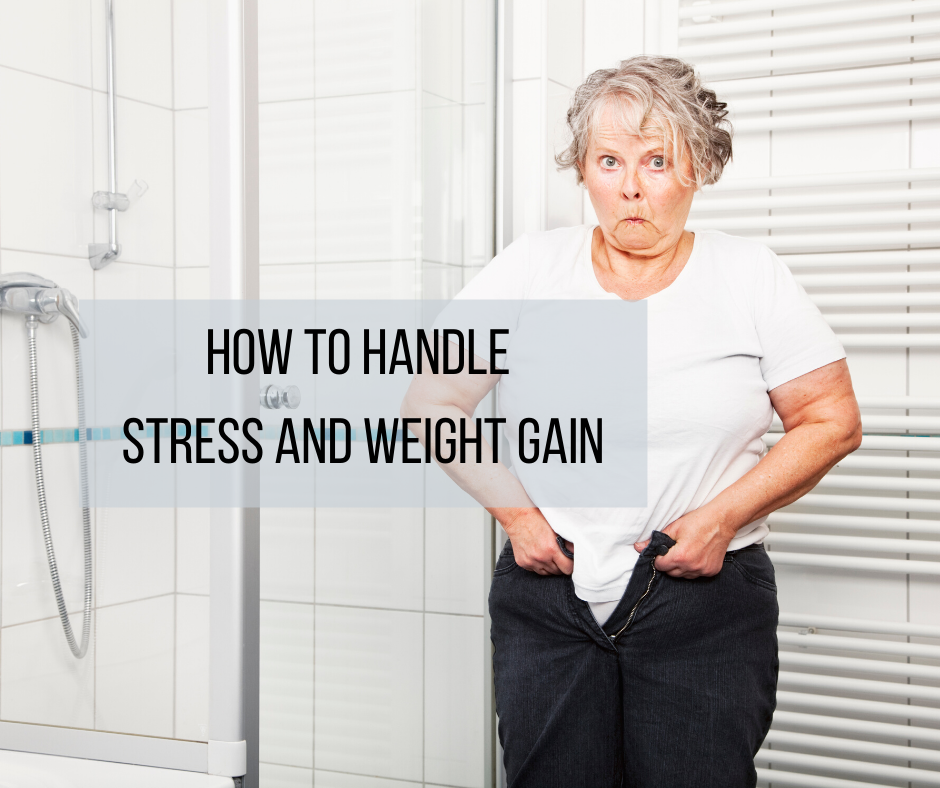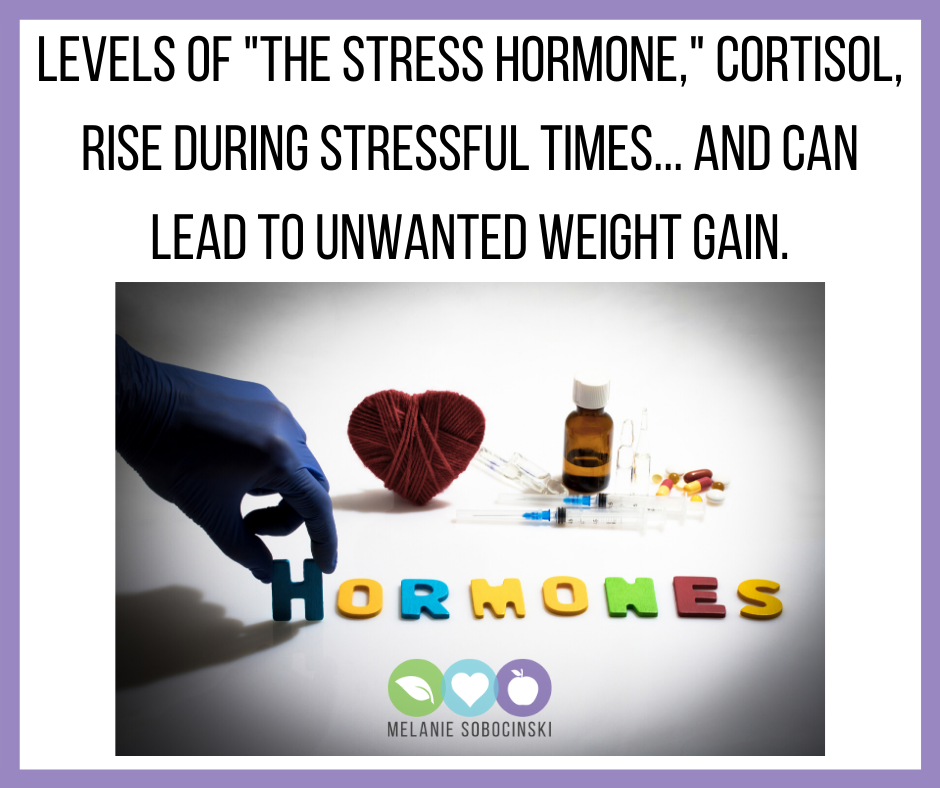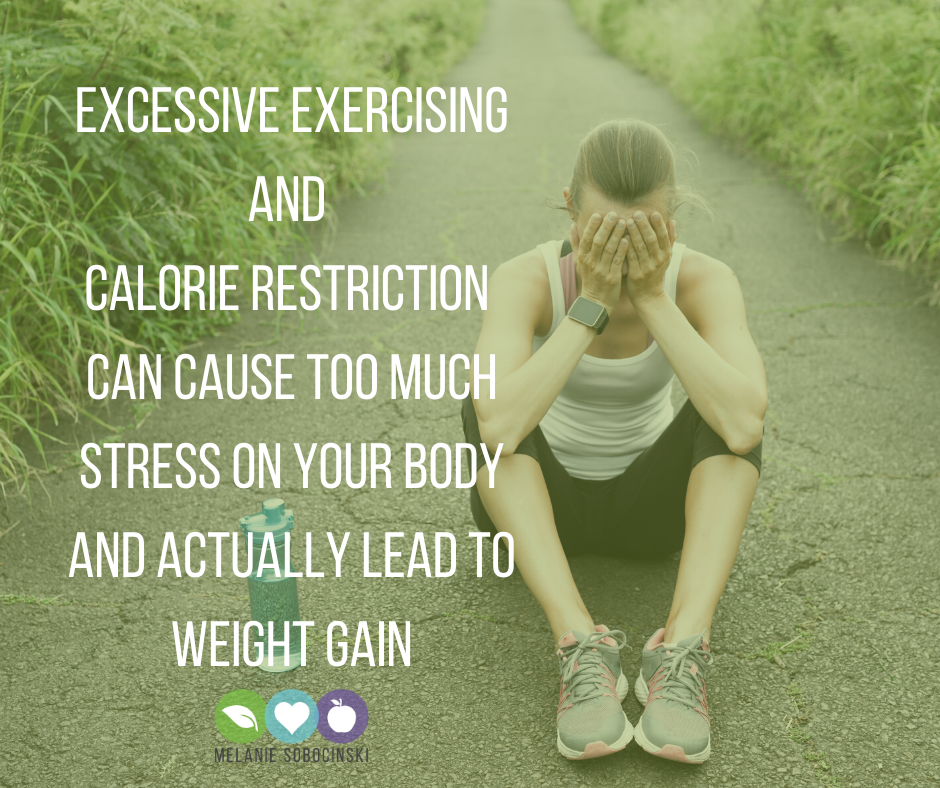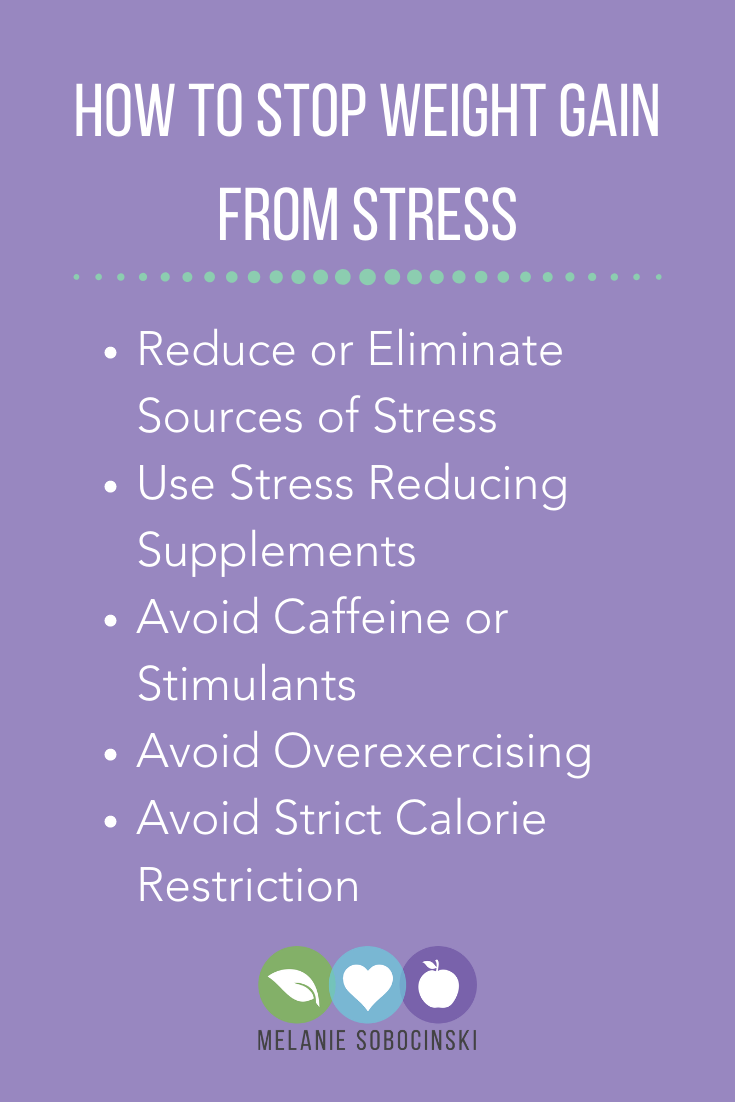How to Handle Stress and Weight Gain

We may earn money or products from the companies mentioned in this post.
Stress and Weight Gain
Are you stressed out? Do you know that your stress and how you handle it can cause you to gain weight? Let’s talk about stress and weight gain.
Levels of “the stress hormone,” cortisol, rise during stressful times… and YES, it can lead to weight gain. This increased level can also cause higher insulin levels causing your blood sugar to drop and leaving you crave sugary, fatty foods.
When we’re stressed, we reach for comfort foods, foods that may not necessarily be all that good for us. Your body actually releases chemicals in response to food that might have a direct calming effect. This is what some may call EMOTIONAL EATING!!
So basically, more stress = more cortisol = higher appetite for junk food = more belly fat! UGH. It can be a never ending cycle if you have a LOT of stress in your life. I mean, who doesn’t have stress these days? SO, how do you get control of it all? How to you combat your stress and avoid gaining weight?

Is the weight always from STRESS EATING?
I’m going to tell you the answer to that question can be both YES and NO! We seem to think that weigh gain is always caused by overeating but that may not always be the case. In fact, we could be running ourselves in a vicious cycle thinking we need to eat less and workout more to lose this stress gained weight.
Remember, I said STRESS and the hormones involved can cause unwanted weight gain and there are many different things we are doing, without maybe even knowing that might be causing our bodies stress. So what are they?
What can cause stress on our body
- Over Exercising
There are times when we gain said weight and we just try to workout to lose it when in fact, we may be causing more harm than good. Exercise is actually a stress on your body and too much of it may not be such a good thing. Some forms of exercise can actually put an increased demand on the body and increase the cortisol levels.
The problem with excessive exercising is that you may never allow your body to heal from the last time you exercised. This leads to over-exercising, chronic exhaustion and even weight gain – even if you are exercising daily! Listen to your body and be sure to take rest days.
The goal with exercising is to make sure that you are left energized afterward, not completely exhausted.
- Calorie Restriction
Caloric restriction, much like over-exercising, puts increased stress on the body. I’ll call this caloric restriction “DIETING” or “yo-yo dieting”. This excessive restriction and on again off again dieting can lead to some really confused hormones.
Prolonged caloric restriction puts extra strain on your body, causes metabolic damage, increases cortisol (1) and causes changes to thyroid function.. this can slow down your metabolism BIG TIME!
We think that by reducing our calories we are helping in the weight loss process when in fact we are doing just the opposite. When we nourish our bodies and fuel them properly with whole foods, it can do amazing things. Eating properly can actually aid in weight loss.

How to Stop Weight Gain From Stress
Is there a secret to handling the stress in our lives?
There is!! Clearly avoiding the overexercising and calorie restriction is going to be KEY. It seems we’ve been taught by the diet society that eating less and moving more is the only way to lose weight. If you’re not sure about that, re-read the above portion of this blog.
What else can we do to avoid the stress that may be causing weight gain?
- Reduce or Eliminate sources of Stress
I get it, this sounds easier than it probably is since we all have day to day stress. When stress gets to be too much it can really cause health issues so it is important to try to reduce the source it may be coming from.
You can do this using several therapies including things like ensuring that you sleep at least 8 hours each night, taking supplements, eating healthy sources of carbohydrates and practicing meditation or mindfulness (2). I have many of my clients do deep breathing exercises to help them relax.
- Use Stress Reducing Supplements
Good quality supplements have the potential to dramatically improve your results if taken correctly and for a sufficient amount of time. Trust me on this one, I know from experience and I’ve found some pretty high quality supplements that have dramatically changed my life and helped reduce my stress levels.
These supplements, called adaptogens, have many studies showing that they can alter cortisol (3), but that they can also promote weight loss by increasing muscle mass and by reducing recovery time post work out.
Supplementing with high-quality supplements such as ashwagandha or Rhodiola may be the boost your body needs.
- Avoid Caffeine and Stimulants
Caffeine and other stimulants really are a double-edged sword. On one hand, they can provide you with immediate energy, or at least an immediate sense of perceived energy.
On the other hand, it comes at a cost…the CRASH afterward. I do not recommend anything that promised to give you an instant boost in energy. It’s playing with the cortisol and other hormones and it can also lead to over use and dependency.
FINAL THOUGHTS
Stress can be a nasty little thing in our lives but when we have strategies to combat it we can see relief. Fighting weight gain related to stress can be as simple as managing your stress and practicing healthy lifestyle habits which increase your resilience to stress.
It may seem difficult in the beginning to make these changes but once you do, you will notice a big difference in how you feel. Using these strategies long term will help you eliminate that stress weight.
I’d love to hear from you:
Do you feel your weight gain might be stress related?
What have you done in the past to help with your stress?

Latest posts by Melanie Sobocinski (see all)
- Why Your Metabolism and Hormones May be a Little Slow - November 5, 2020
- My Before and After Story - September 11, 2020
- 7 Changes That Happen When You Don’t Eat Enough - July 16, 2020




